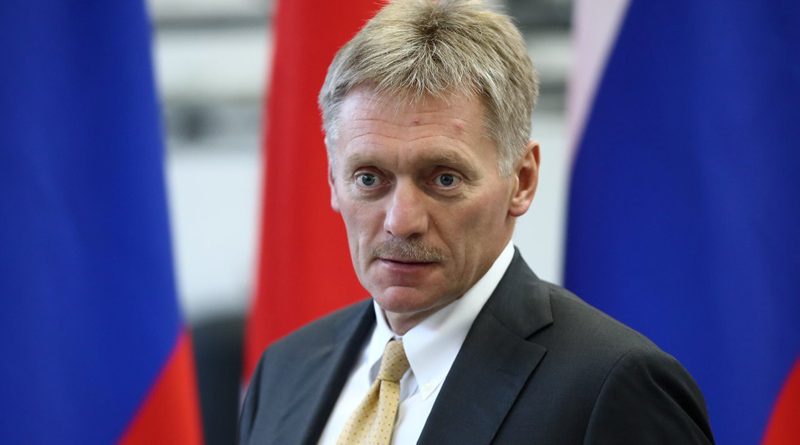Ukraine and Russia likely to begin face-to-face talks on Tuesday, Kremlin says
Face-to-face peace talks between Ukraine and Russia are likely to start in Turkey on on Tuesday, the Kremlin has said, as Kyiv insisted that with Moscow’s invasion largely stalled it was not prepared to make any concessions on its territorial integrity.
The Russian president, Vladimir Putin, and his Turkish counterpart, Recep Tayyip Erdoğan, agreed on Sunday that ceasefire talks would be held in Istanbul, possibly beginning as early as the following day.
The Kremlin spokesperson, Dmitry Peskov, said on Monday, however, that Tuesday was more likely. Further comment could “only hurt the negotiation process” but the fact talks were “continuing to take place in person is, of course, important”, he said.
Officials have played down the chances of a major breakthrough, but observers said the two sides’ first in-person encounter since a bad-tempered meeting between the Russian foreign minister, Sergei Lavrov, and his Ukrainian counterpart, Dmytro Kuleba, in Antalya on 10 March was a sign that the dynamics may be shifting.
Kyiv has suggested that with Russia’s invasion forces held up by stiff Ukrainian resistance, heavy losses and mounting tactical and logistical problems, Moscow may be more willing to compromise as its hopes of installing a new government fade.
Having failed in its attempt to encircle the Ukrainian capital and force the government’s capitulation, the Russian defence ministry said last week that it was shifting its focus to expanding the territory held by pro-Russian separatists in eastern Ukraine.
Both sides have spoken of a possible formula under which Ukraine might accept some kind of formal neutral status, but neither has shifted on Russia’s territorial claims which include Crimea, seized by Moscow in 2014, and the eastern Donbass region.
Ukraine’s president, Volodymyr Zelenskiy, said at the weekend that some form of compromise involving Donbass may be possible but did not suggest the region might be ceded, making clear that “territorial integrity” was Kyiv’s priority.
Lavrov said a meeting between Putin and Zelenskiy – who have met only once, in Paris in 2019 – would be counterproductive at this stage, and that one would be needed “as soon as we are close to resolving all key issues”.
He repeated that Russia’s demands included Ukraine’s demilitarisation, “denazification” and future neutrality, and said the current crisis had “been brewing so long, all these years, that a huge number of problems have built up”.
Zelenskiy, who has suggested the question of neutrality should be put to voters in a referendum after Russian troops withdraw, said Kyiv “understands it is impossible to liberate all territory by force” but that his country’s “sovereignty and territorial integrity are beyond doubt”.
“Effective security guarantees are mandatory,” he said.
Peskov said Russia “cannot see any substantial achievements or breakthroughs so far”, a sentiment Vadym Denysenko, a Ukrainian interior ministry adviser, ecehoed on Monday.
Peskov also said comments on Saturday by the US president, Joe Biden, in which he described Putin as a “butcher” who “cannot remain in power”, as alarming. The White House has denied Biden was seeking regime change in Moscow.
In an interview with The Economist, Zelenskiy said he did not think Putin “visualises in his own mind the same Ukraine we see. He sees Ukraine as a part of his world, his worldview, but that doesn’t correspond with what’s happened over the last 30 years”.
He said Moscow was “throwing Russian soldiers like logs into a train’s furnace” and criticised the west’s sanctions as “incomplete”.
“We believe in victory. It’s impossible to believe in anything else,” he said. “We will definitely win because this is our home, on our land, our independence. It’s just a question of time.”
Russia’s invasion, which was launched on 24 February, has killed thousands and driven more than 10 million people from their homes, including almost 4 million who have fled abroad, mainly to Poland.
Ukraine’s foreign ministry said the situation in Mariupol was “catastrophic”, with about 170,000 civilians encircled by Russian forces and supplies of food, water and medicine dwindling fast. France, Greece and Turkey are hoping to launch a mass evacuation from the southern port city within days.
Ukraine’s economy minister, Yulia Svyrydenko, said on Monday that the invasion had so far cost the country nearly $565bn (£431bn) in terms of damage to infrastructure, lost economic growth and other factors, with 8,000km (4,970 miles) of roads and 10m square metres of housing damaged or destroyed.
Ukrainian forces went on the offensive last week, pushing Russian troops back in areas around Kyiv and in the north-east and the south-west. Russia’s armoured columns are largely bogged down, with trouble resupplying and making little or no progress, although they continue to pulverise residential areas.
“As of today, the enemy is regrouping its forces, but they cannot advance anywhere in Ukraine,” the country’s deputy defence minister, Hanna Malyar, said on Monday.
A senior Ukrainian military official said the country’s defence forces were holding back Russian troops trying to break through from the north-east and north-west, while in the south they were focused on defending the cities of Krivy Rih, Zaporizhzhia and Mykolayiv.

